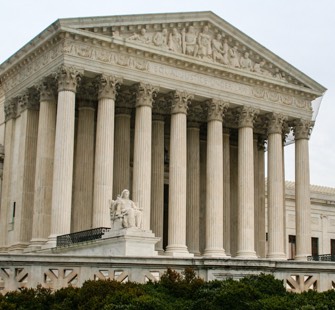Supreme Court will decide whether BRI or Phillips standard applies to IPR claims
 During patent examination, pending patent claims are given the broadest reasonable interpretation (“BRI”) that is consistent with the specification, as would be understood by one of ordinary skill in the art. See Phillips v. AWH Corp., 415 F.3d 1303, 1316 (Fed. Cir. 2005).
During patent examination, pending patent claims are given the broadest reasonable interpretation (“BRI”) that is consistent with the specification, as would be understood by one of ordinary skill in the art. See Phillips v. AWH Corp., 415 F.3d 1303, 1316 (Fed. Cir. 2005).
The Patent Office applies the broadest reasonable interpretation in virtually all circumstances. It is, however, true that at least one situation where the Patent Office does not use broadest reasonable interpretation is when a reexamination of a patent is undertaken and reexamination will not be concluded until after the patent term has expired. The position of the USPTO is that, in this situation, a patent could not be changed because the term has expired; therefore, the only remaining “life” a patent has would be in litigation because the statute of limitations for a patent infringement action is six years. Thus, the USPTO applies the Phillips standard. (Further discussion of this advanced topic goes beyond the scope of this article, which is intended to be a primer on the broadest reasonable interpretation standard.)


No Comments
03.9.16 | Claim Construction and Markman Hearings, Inter Partes Review, Patent Issues, posts, Supreme Court Cases | Gene Quinn